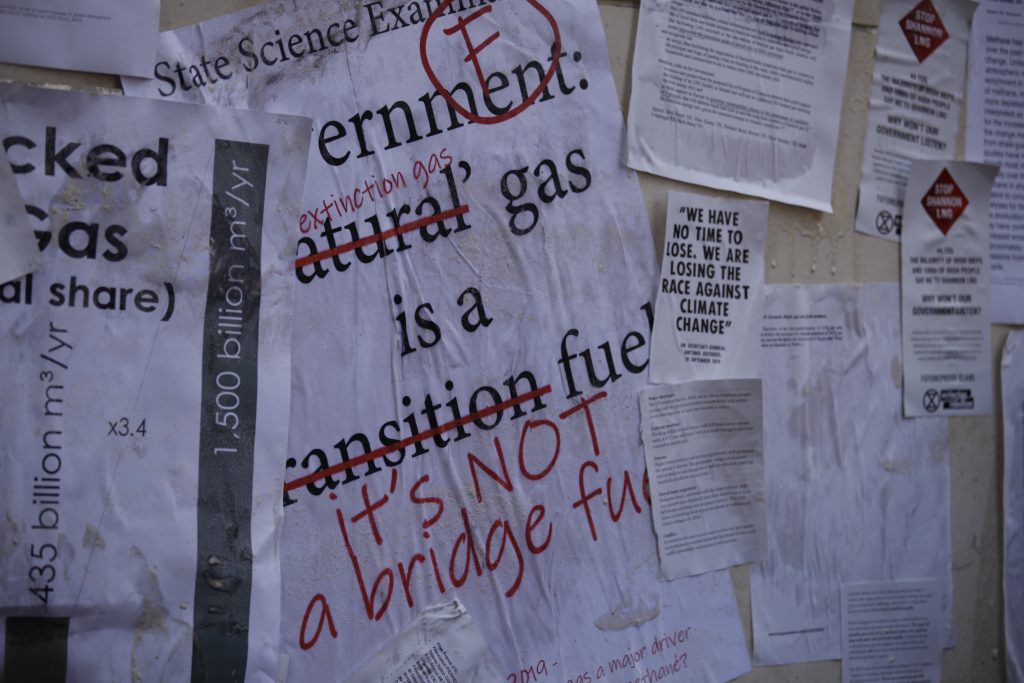Parliament votes down motion to block gas from EU energy project list

February 12th, 2020
The European Parliament today backed the EU’s list of priority energy projects that includes dozens of gas schemes critics say are incompatible with the bloc’s climate ambitions.
This morning, the Parliament voted down a motion – 169 in favour, 443 against – to veto the Commission’s Projects of Common Interest (PCI) list as it contains 55 fossil fuel projects.
The motion was tabled by 100 MEPs, including Clare Daly and Mick Wallace, and supported by the Greens/EFA and European United Left groupings that include both Irish Green MEPs, independent Luke ‘Ming’ Flanagan and Sinn Fein’s Matt Carthy who was not available to vote.
The political groupings that include Fianna Fail and Fine Gael MEPs voted strongly against the motion, although Fine Gael’s Maria Walsh broke party lines to vote in favour of the motion. Mairead McGuinness could not vote as she was chairing the session.
Inclusion on the list gives large-scale energy projects access to a streamlined planning and permitting process, as well as making them eligible for access to a multi-billion euro funding.
The list contains electricity and smart grid projects but also contains dozens of gas projects, including the proposed Shannon liquefied natural gas (LNG) terminal, despite the EU’s commitment to phase out fossil fuel supports.
Shannon LNG has been criticised by scientists, activists and even Hollywood star Mark Ruffalo over the likelihood that the project will see Ireland become a key entry point for US fracked gas into the EU.
Last month, the European Parliament’s Energy Committee also voted down a motion co-signed by Ciarán Cuffe that called for the rejection of the entire list and a rapid revision of the regulation underpinning the PCI process.
In an email sent yesterday to all MEPs, the Vice-Chair of the Committee, Zdzisław Krasnodebski, urged his colleagues to reject the motion as keeping infrastructure for the “transition fuel” on the list will ensure a “cost-efficient transition without a lock-in effect”.
“Natural gas will deliver low-emission solutions for economies and ensure that costs of the transition will be kept in checks,” the Polish MEP said in the email seen by The Green News.

Potential over-investment in the billions
A recent analysis by energy consultants Artelys found that the gas projects, including Shannon LNG, are “unnecessary” as existing EU gas infrastructure is “sufficiently capable of meeting a variety of future gas demand scenarios” even in the event of extreme supply disruption.
The report, commissioned by the European Climate Foundation, found that the EU risks a potential over-investment of tens of billions in the 32 gas projects on the PCI list that will cost €29 billion to roll out in full.
A recent report by Global Energy Monitor found that there is €117 billion worth of new fossil gas infrastructure planned across Europe. This would increase Europe’s import capacity of natural gas by 30 per cent, adding to significant overcapacity today, the report found.
According to MEP Thomas Waitz, the co-chair of the European Green Party, the Parliament’s support of new gas projects is in direct contradiction to its recent declaration of a climate emergency in Europe.
“Billions of taxpayer money will now go towards financing gas pipelines, gas terminals and fracking, instead of investing in the expansion of renewable energy,” he added.
“We demand an instant revision of the criteria for projects of common interest, so that future projects are in accordance with the climate objectives of the European Green Deal and in line with the Just Transition needed.”
Last month, activist groups from across Irish, Europe and the US called on the Commission’s energy division to carry out a review of the decision to approve the inclusion of LNG terminals on the list.
The groups, including Food & Water Europe and Friends of the Earth Ireland, argue that the Commission broke its own rules by failing to consider the climate or sustainability impacts of the proposed projects in its decision-making process as mandated under EU regulations.
[x_author title=”About the Author”]







